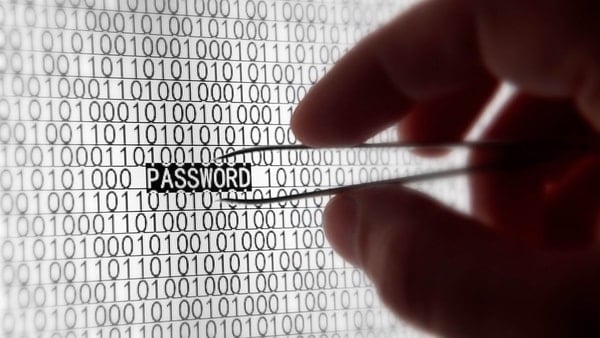
Colocation America Reviews: Presidents
September 30, 2016
This Week in Getting Hacked: Shadow Broker Edition
October 6, 2016With information technology and the Internet rapidly developing, it’s becoming more difficult to keep your connection to the web secure and private. Hard as we may try to protect ourselves, it is indeed possible for certain individuals with malicious intents to gain access to your private information. The more that they know, and the fewer steps you take in order to protect your information, the easier it becomes.
So is there anything that you yourself can do to protect yourself online and make your connection more secure? Fortunately, there is, indeed. There are a lot of precautions that you can take that, when put together, make for some pretty strong protection against hackers. Here are some tips for things that you can try right away in order to protect your data and browse more securely.
1. Choose Strong Passwords

This one should be pretty obvious, but the more complex your password is, the harder it will be for brute-force software to crack it. Try to use both uppercase and lowercase letters, numbers and symbols. Don’t use anything obvious, such as your wife’s birthday or your kids’ names as your password, because that’s the first thing the hacker will think of. Try to use as many different passwords as you can, and keep them all in a safe place.
2. Don’t Stay Logged In
Most of us are guilty of leaving a logged-in Facebook page unattended, although if you aren’t around malicious people, the worst thing that can happen is a silly, controversial status about your sexuality or something of the sort. However, this is a serious mistake if you’re concerned about your security, especially if you happen to do it at work. Close all social media when you’re done using them and don’t tick any “Remember me” boxes.
3. Clear Your Browser History

You’d be amazed how much information gets left behind in your browser history. Not just sites you’ve visited, but also passwords and all kinds of other sensitive data that could leave you vulnerable if someone gets a hold of them. Make it a habit to clean all your browsing data once a day. It might be a nuisance to always input your password and log into the same website tens of times a day, but trust us when we say that you’ll quickly get used to it.
4. Secure Your Smartphone
We recommend that you use some kind of sophisticated locking system on your smartphone if you aren’t using it already. Pattern locks aren’t that safe, and you’d be better off with a pin lock or a fingerprint lock, if possible. Smartphones have the tendency to sync with every possible online account that you have, which gives whoever is using your phone instant access to a lot (if not all) of your files. Your phone is your property and no one should be able to look at it without your permission or knowledge, and locking it adequately can prevent just that from happening.
5. Use HTTPS

HTTPS means that your connection is secure and private. Any modern browser will probably warn you whenever you’re trying to access a site that’s ordinary HTTP instead of HTTPS, but keep an eye out for this just in case. An ordinary HTTP connection can potentially be read by a third party, which is definitely not something you want. Fortunately, almost all of the most popular websites such as Google, Facebook, and Twitter have been using HTTPS for a while now, in order to protect the privacy and identity of their users.
6. Multiple E-mail Addresses
A good rule of thumb for security is never to use a business e-mail to sign in anywhere. Make a separate, private e-mail for your Facebook account and any others, so that in the event of a security breach you don’t lose any important business e-mails. Also, since this “secret” e-mail address will probably contain some password information in certain messages, make sure that you get rid of those messages and keep your passwords elsewhere. Keeping passwords on the cloud is a bad idea, period.
7. Use a VPN
A VPN can provide some serious encryption and privacy for your connection, and hide your true location from people trying to eavesdrop. Even a free VPN will set you up with some decent protection by giving you a new IP address, and a paid one will do even better. VPNs are becoming more and more essential for browsing every day, they’re really easy to use and they truly make a huge difference when it comes to security.
8. Use Tor

If you’re really paranoid about your online privacy, this one is definitely for you. Tor is a secure browser that guarantees complete anonymity by connecting to the Internet through a different proxy every time you restart it, and by default, it disables any cookies or cache that might compromise your security. Note that because Tor puts security first, a lot of essential services are disabled, which means that not all websites are guaranteed to work correctly.
9. Linking Accounts Is A Bad Idea
You’ve probably had the opportunity to log into some third-party website using your Facebook, Google or Twitter account. This is essentially not something you want to do because in the event of a security breach of one of these “parent services”, every account that you’ve linked to the said service becomes potentially vulnerable. It doesn’t take a lot of time to create a new account with a private, anonymous e-mail address, so we advise you to take the extra twenty seconds and do so, lest you put your account in danger later.
10. Smart Security Questions
Security questions are generally used as a backup if you forget your password. It’s also one of the main ways that hackers gain access to your accounts. Since these questions are usually comprised of very basic information about yourself (your first dog’s name, your mother’s maiden name etc.), anyone who knows you even a little bit can potentially answer these questions correctly and gain access to your account. Instead, you should approach security questions as a second password. Don’t answer the question directly, and instead, input some other keyword that you’ll remember.
Conclusion
As you can see, it’s not that hard to secure yourself online, it just takes a bit of thought and a bit of caution. Online security is definitely not a game anymore, and will become more serious as more of our data is being shared and stored online. So be smart while you’re still safe, and you’ll remain safe.
